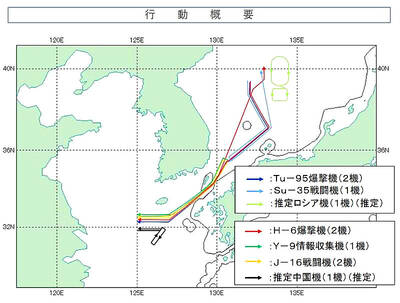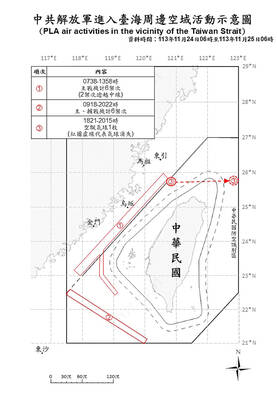Chinese Internet users have turned to YouTube as part of Beijing’s attempt to influence the Taiwanese public, a Taiwanese academic cautioned yesterday.
Numerous YouTube channels that appear to have been recently set up by Chinese netizens had 5,000 subscribers almost as soon as they were launched, said Puma Shen (沈伯洋), an assistant professor at National Taipei University’s Graduate School of Criminology.
The YouTube channels could be trying to influence Taiwan’s presidential and legislative elections next month, Shen added.

Photo: Peter Lo, Taipei Times
Chinese “Internet armies” have shifted the front line from Facebook to YouTube, after efforts on Facebook proved ineffective, he said, adding that Facebook closed 118 fan pages, 99 groups and 51 “sock puppets” believed to have originated in Taiwan.
The YouTubers and vloggers using the newly created accounts talk about issues in Taiwan and the Jan. 11 elections using Chinese vernacular, and the subtitles are peppered with the type of errors that commonly occur when converting simplified Chinese to traditional Chinese, suggesting that the content was created by Chinese and the YouTubers are reading from scripts, Shen said.
Before last year’s nine-in-one elections, Chinese Internet users created disinformation that they uploaded using IP addresses in Greece or other locations, he said.
The users mobilized their followers to click on the videos or share them through instant messaging apps such as Line to help them accrue hits, causing YouTube to recommend the pages to a Taiwanese audience, he said.
This time, Chinese Internet users have commissioned Taiwanese Internet personalities to create the content and videos, Shen said, adding that it has been rumored that some YouTubers have received training in China.
In April, online advertisements surfaced in Taiwan that sought to hire “political influencers” to promote “harmony and unification between the two sides of the Taiwan Strait,” Shen said, adding that the ads promised a minimum monthly salary of 5,000 to 10,000 yuan (US$714 to US$1,427).
Some Taiwanese YouTubers are not sponsored by China, but aim to make money by uploading content that appeals to a Chinese audience, which is made obvious by the WeChat and Alipay accounts superimposed on their videos, Shen said.
The operations carried out by Chinese Internet users on Line are of a similar scale as during last year’s elections, but the disinformation seems less organized than last year, suggesting that it is not coming from Beijing, but from other unification supporters in the region, Shen said.

Theaters and institutions in Taiwan have received 28 threatening e-mails, including bomb threats, since a documentary critical of China began being screened across the nation last month, the National Security Bureau said yesterday. The actions are part of China’s attempts to undermine Taiwan’s sovereignty, it said. State Organs (國有器官) documents allegations that Chinese government officials engage in organ harvesting and other illegal activities. From last month to Friday last week, 28 incidents have been reported of theaters or institutions receiving threats, including bomb and shooting threats, if they did not stop showing the documentary, the bureau said. Although the threats were not carried out,

The Mainland Affairs Council (MAC) on Friday condemned Chinese and Russian authorities for escalating regional tensions, citing Chinese warplanes crossing the Taiwan Strait’s median line and joint China-Russia military activities breaching South Korea’s air defense identification zone (KADIZ) over the past two days. A total of 30 Chinese warplanes crossed the median line of the Taiwan Strait on Thursday and Friday, entering Taiwan’s northern and southwestern airspace in coordination with 15 naval vessels and three high-altitude balloons, the MAC said in a statement. The Chinese military also carried out another “joint combat readiness patrol” targeting Taiwan on Thursday evening, the MAC said. On

‘GRAY ZONE’ TACTICS: China continues to build up its military capacity while regularly deploying jets and warships around Taiwan, with the latest balloon spotted on Sunday The US is drawing up contingency plans for military deployments in Japan and the Philippines in case of a Taiwan emergency, Japan’s Kyodo news agency reported. They would be incorporated in a first joint operation plan to be formulated in December, Kyodo reported late on Sunday, citing sources familiar with Japan-US relations. A US Marine Corps regiment that possesses High Mobility Artillery Rocket Systems — a light multiple rocket launcher — would be deployed along the Nansei Island chain stretching from Kyushu to Yonaguni near Taiwan, Kyodo said. According to US military guidelines for dispatching marines in small formations to several locations,

The Mainland Affairs Council (MAC) yesterday confirmed that Chinese students visiting Taiwan at the invitation of the Ma Ying-jeou Foundation were almost all affiliated with the Chinese Communist Party (CCP). During yesterday’s meeting convened by the legislature’s Foreign Affairs and National Defense Committee, Democratic Progressive Party (DPP) Legislator Michelle Lin (林楚茵) asked whether the visit was a way to spread China’s so-called “united front” rhetoric, to which MAC Deputy Ministry Shen You-chung (沈有忠) responded with the CCP comment. The MAC noticed that the Chinese individuals visiting Taiwan, including those in sports, education, or religion, have had increasingly impressive backgrounds, demonstrating that the